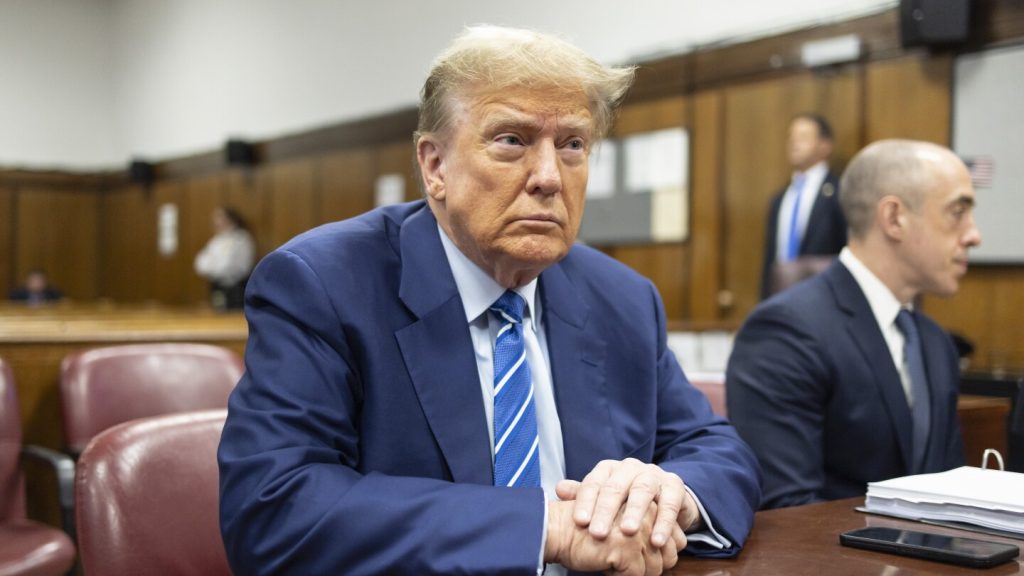A federal judge has swiftly rejected Donald Trump’s request to intervene in his New York hush money criminal case, preventing the former president from moving the case to federal court. Trump’s lawyers filed a notice of appeal in response to the ruling, expressing their intention to continue fighting to move the case to federal court. The judge ruled that the hush money payments at the center of Trump’s case were private acts outside the bounds of executive authority, despite Trump’s attempts to argue otherwise.
The Manhattan district attorney’s office declined to comment on the ruling, but had earlier objected to Trump’s efforts to delay post-trial decisions in the case. The trial judge is expected to rule on key defense requests, including a motion to delay Trump’s sentencing until after the November election and a request to overturn his conviction. Trump was convicted in May of falsifying business records to conceal a hush money payment to porn actor Stormy Daniels, and could face up to four years in prison as a result.
Trump’s lawyers have argued that the timing of his sentencing, just two days after a decision on his immunity claims, does not give him enough time to consider his next steps. They have also raised concerns about potential election interference, as the sentencing is scheduled just seven weeks before Election Day. Prosecutors have indicated that they are open to a schedule that allows for adequate time to adjudicate Trump’s motion to overturn the verdict while also sentencing him without unreasonable delay.
The judge quickly dismissed claims of bias and unfair treatment against Trump in the state trial, noting that those issues are for the state appellate courts to address. Instead, he focused on Trump’s immunity claims, stating that the Supreme Court’s ruling restricts prosecutions of ex-presidents for official acts. Trump’s lawyers have argued that prosecutors rushed to trial and presented evidence that should not have been allowed under the ruling. The case hinges on whether the hush money payments were personal acts or official actions by Trump.
Trump’s legal team will continue to push for the case to be moved to federal court, despite the federal judge’s rejection of their initial request. The ongoing legal battle underscores the complex legal issues surrounding Trump’s hush money case and highlights the broader implications of the Supreme Court’s ruling on presidential immunity. As the case moves forward, Trump’s fate remains uncertain as he faces the possibility of prison time for his role in the hush money scandal.














